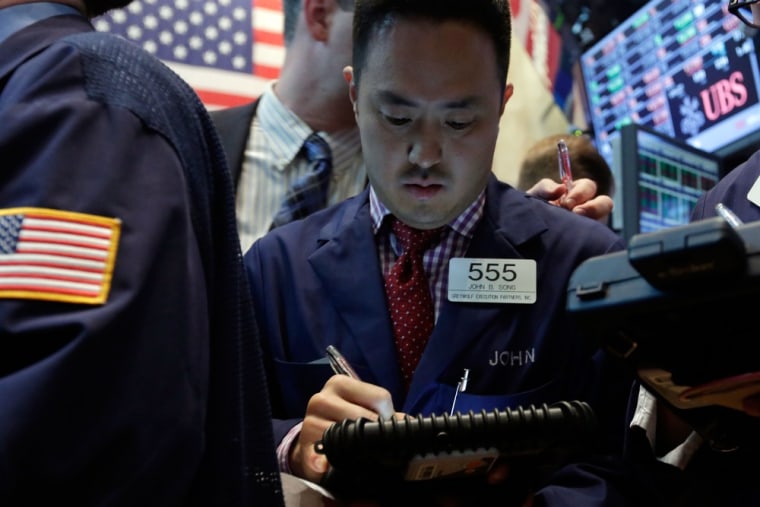
Stocks closed mostlylower for a third session, as markets remain worried the Federal Reserve may start withdrawing stimulus by curtailing bond purchases later this year.
The Dow Jones Industrial Average ended slightly higher at 15,303.10. Procter & Gamble led the blue chips as A.G. Lafley returns as CEO. Hewlett-Packard lagged after Thursday's 17 percent surge.
But the broader S&P 500 and Nasdaq markets edged lower.
Among S&P sectors, utilities and energy paced the declines, while staples advanced. Weak earnings weighed on retailers and the broader consumer discretionary sector, while P&G lifted staples.
"The market's been extended for quite a while," Doug Foreman, co-chief investment officer at Kayne Anderson Rudnick Investment Management, said. "People have been clamoring for a correction. Maybe it started this week."
The "convenient excuse" for the pullback, Foreman said, was talk of tapering by the Fed and when they'll back off the monetary gas pedal.
Markets have become more cautious since Fed Chairman Ben Bernanke suggested the Fed could start slowing liquidity injections later in the year if the economic data improves enough to warrant it. But Foreman said the Fed won't change its position until the economic recovery firmly takes hold.
On Friday, St. Louis Federal Reserve Bank President James Bullard told CNBC that low inflation was the "wild card" that needs to be solved, before the Fed can start tapering off its bond purchasing program.
"Before I am in favor of tapering I would like to see some assurance that inflation is going to move back towards target," he said.
Today's data was encouraging. U.S. durable goods orders for April rose 3.3 percent after falling 5.9 percent in March.
"The reason that U.S. equities have been going up is not really entirely liquidity. It's to do with the fact that U.S. businesses are doing quite well," Jim McCaughan, Principal Global Investors CEO, said.
He said longer-term investors should take advantage of the short-term declines. So far this year, market pullbacks have been shallow as investors take advantage of the declines to add to positions.
Saira Malik of TIAA-CREF also isn't worried about Fed tapering. "There are a lot of strong underpinnings to support the stock market if the Fed chooses to taper," she said. Malik cited housing, equity inflows and declining stock market correlations which should mean stocks will trade more on fundamentals.